“实践社会科学”系列丛书总序
(2005)
黄宗智
中国和美国的社会科学近年来多偏重脱离现实的抽象理论建构,而本系列丛书所强调的则是实践中的经济、法律、社会与历史以及由此呈现的理论逻辑。本丛书所收入的理论作品不是由理论出发去裁剪实践,而是从实践出发去建构理论;所收入的经验研究则是那些具有重要理论含义的著作。
我们拟在如下三个子系列内收入精选后的重要作品,将同时推出中文版和英文版;如果相关作品已有英文版或中文版,则将其翻译出版。三个子系列分别是实践法史与法理、实践经济史与经济学、以及中国乡村:实践历史、现实与理论。
现今的社会科学研究通常由某一特定的理论立场出发,提出一项由该理论视角所生发出的研究问题,目标则是要去证明(有时候是否证)所设定的“假说”。这种研究方法可以是被明确说明的,也可以是未经明言的,但总是带有一系列不言而喻的预设,甚或是无意识的预设。
因为当下的社会科学理论基本上发端于西方,这种认识论的进路经常伴随着西方的经验(诸如资本主义、自由市场、形式主义法律等)以及其理论抽象乃是普适真理的信仰。而在适用于发展中的非西方世界时,社会科学的研究基本上变成一种探索研究对象国家或地区的不足的工作,经常隐含或者公开倡导着在西方“模式”道路上的发展。在经济学和法学领域内,它表现得最为明显,这是因为它们是当前最形式主义化和意识形态化的学科。而中国乡村的历史与现实则是最明显与主流西方理论不相符的经验实际。
我们的“实践社会科学”书系倡导把上述的认知过程颠倒过来,不是从源自西方的理论以及由此得出的理论假说出发,而是从研究对象国家的实践历史与现实出发而后进入理论建构。近代以来,面对着西方在经济、军事以及文化学理上的扩张,非西方国家无可避免地被卷入充满冲突性斗争的历史情境内——传统与西方的“现代性”、本土的与引进的、东方的与西方的两者之间的矛盾。若从西方理论的视野去观察,发展中国家的历史社会实践中所发生的几乎必然是悖论式的。
我们从实践出发,是因为不同于理论,实践是生成于研究对象国家自身的历史、社会、经济与政治的情境、视域和话语内的。而且由实践(而非理论)出发所发现的问题,更有可能是所研究国家自身的内生要求,而不是源自西方理论/认知所关切的问题。
实践所展示的首先是悖论现象的共存——那些看起来自相矛盾且相互排斥的二元现实,但却既真实又真切地共存着,例如:没有(社会)发展的(全球化的)商业化、没有民主的资本主义、或者没有相应的司法实践的西化形式主义法律。它挑战着那些在它们之间预设因果关系的主流西方理论的有效性,因此呼吁着新理论的构建。此外,理论往往由源自西方的形式演绎逻辑所主导,坚持逻辑上的前后一贯,而实践则不同于理论,惯常地容纳着看起来是自相矛盾的现象。从实践出发的认知要求的是,根据实践自身逻辑的概念化来建构理论——比如中国的“摸着石头过河”。
从实践出发的视野要求将历史过程作为出发点,要求由此出发的理论建构。但是,这样的实践和理论关怀并不意味着简单地拒斥或盲目无视西方的社会科学理论,而是要与现有理论进行自觉的对话,同时自觉地借鉴和推进西方内部多样的非主流理论传统。此类研究还可以表明在实际层面上,在西方主流的形式主义理论以外,有必要结合西方主流以外的理论传统去理解西方自身的经验——例如,结合法律实用主义(以及马克思主义和后现代主义)和主流的“古典正统”法学传统,去理解美国法律实践的过去和现在,或者结合马克思主义与实体主义和主流的亚当·斯密古典自由主义经济学传统,去理解西方的实践经济史。更重要的还在于,要去揭示这些存在于实践中的结合的运转理论逻辑,在这些看起来相互排斥的二元对立之间,去寻找超越“非此即彼”之逻辑的道路。
我们的丛书拟收入在实践法史与法理、实践经济史与经济学、和中国乡村的实践历史、现实与理论研究领域内的此类著作,也包括讨论中国创新的著作,这些创新已经发生在实践内,但却尚未得到充分的理论关注和表述。我们的目标是要形成一系列具有比主流形式主义研究更适合中国自身的历史和现实的问题意识和理论观念的著作。
The Social Science of Practice
(2005)
Editor, Philip C. C. Huang黄宗智
The typical social science study today proceeds from a certain theoretical position, and asks a question derived from that particular perspective, with the intention of proving (or, sometimes, disproving) the posited "hypothesis." This may be done explicitly or implicitly, but always with a host of assumptions, often unspoken, even unconscious.
Since almost all existing social science theories have originated from the West, such an epistemological approach often comes with the belief that the Western experience (e.g., capitalism and democracy and formalist law) and the theoretical abstractions therefrom are universally applicable. When applied to the developing non-Western world, the research can become mainly a matter of finding inadequacies in the subject country or region, often with implicit or explicit advocacy for development in the direction of the Western "model." This is most evident, for example, in the disciplines of economics and jurisprudence, the most formalistic and ideological of the "modern" disciplines.
Our "social sciences of practice," however, calls for inverting that epistemological process, to proceed not from (Western-originated) theory (and hypotheses derived therefrom), but rather from the practical realities of the subject country. Non-Western countries, faced with the economic-military as well as cultural-intellectual expansion of the West in modern times, have been placed unavoidably into a historical situation of conflicting tugs between tradition and (Western) "modernity," the indigenous and the imported, East and West. What exist in practice are almost of necessity paradoxical when seen from the perspective of Western theory.
We start with practice because, unlike theory, practice is anchored in the subject country's own social-economic and political contexts, perspectives, and discourses. And problems seen through practice rather than theory are far more likely to be of indigenous concern to the subject country itself rather than just theoretical / epistemological concern to the West.
Practice, in fact, tells first and foremost about paradoxes - or the co-existence of pairs of seemingly contradictory and mutually exclusive realities that are both true and real, like (globalized) commercialization without development, or capitalism without democracy, or Westernized formalist legal codes without their judicial practice. It challenges the very validity of commonly used (Western) theories that presuppose a cause and effect relationship between those, and therefore cries out for new theoretical formulations. In addition, unlike theory, which tends to be dominated by deductive / formal (and Western-originated) logic, and hence insists on logical consistency, practice readily accommodates the seemingly contradictory. It demands conceptualization and theorizing in terms of its own logic - such as, for example, China's "feeling for the stones while crossing the river."
The perspective from practice is one that calls for taking historical process as the point of departure, and for theoretical formulations therefrom. Such practical and theoretical concerns do not mean, however, the simple rejection or disregard of Western social science theory, but rather deliberate dialoguing with existing theory, and also deliberate borrowing from and developing the West's multiple alternative theoretical traditions. Such research can in fact highlight the need to combine "mainstream" formalist theoretical traditions with alternative Western theoretical traditions to conceptualize Western experience itself ----e.g., combining the jurisprudential traditions of "classical orthodoxy" with legal pragmatism (and Marxism and postmodernism) to understand the past and present of American law, or the Smithian with the Marxist and substantivist to understand the economic history of the West. Better yet, to uncover the operative theoretical logics of those combinations that exist in practice and to search for ways to go beyond the either/or juxtaposition of binaries that are seen to be mutually exclusive.
Our series proposes to include such works in economics, law, sociology, and political economy, as well as works on such Chinese innovations that have already been made in practice but have yet to receive full theoretical formulation and attention. Our goal is to develop a series of works guided by problematics and theoretical conceptions that are better suited to Chinese concerns and realities than typical "mainstream" formalist studies.
Addendum: WorldCat provides the most systematic information on a global basis listing all the libraries that have purchased access to a given book (only a few Chinese libraries have participated, however).We term this measure WorldCat-access, and have attached them to the individual titles as part of the information identifying the title and its reach. Shown data are from Nov. 20, 2022.
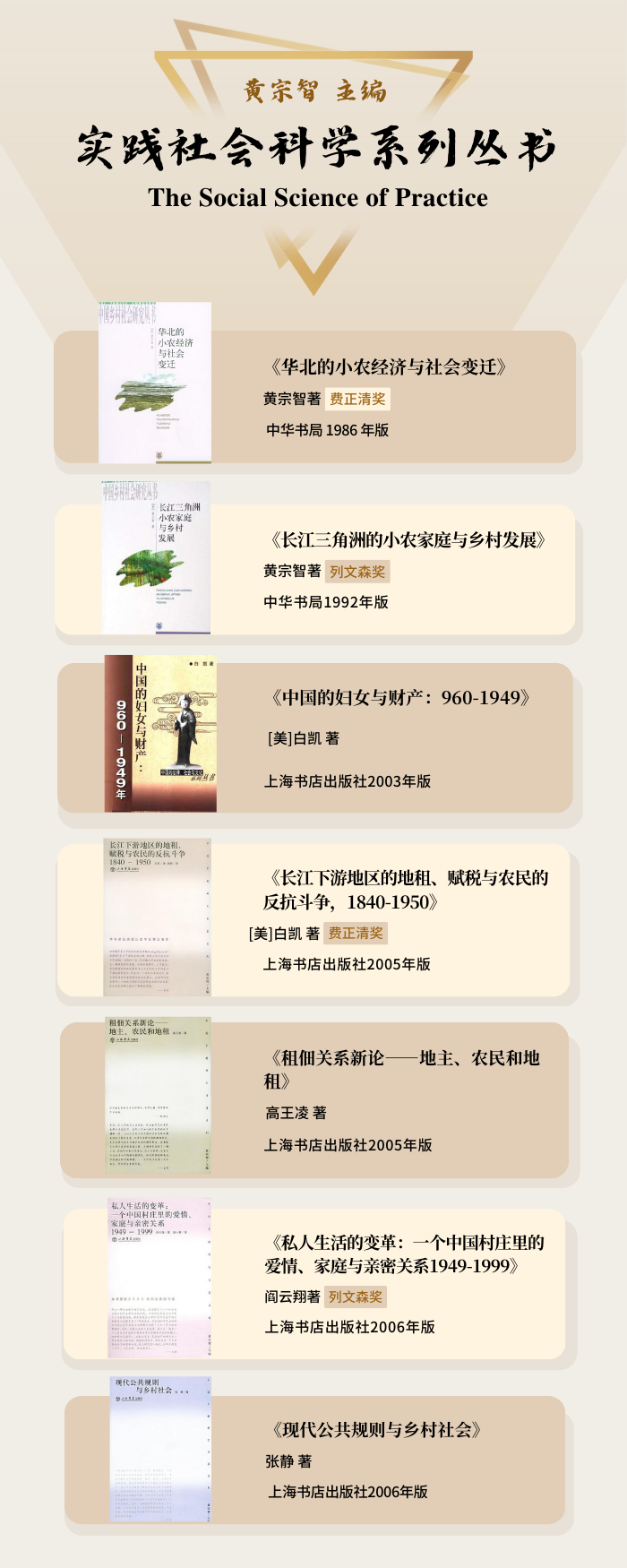
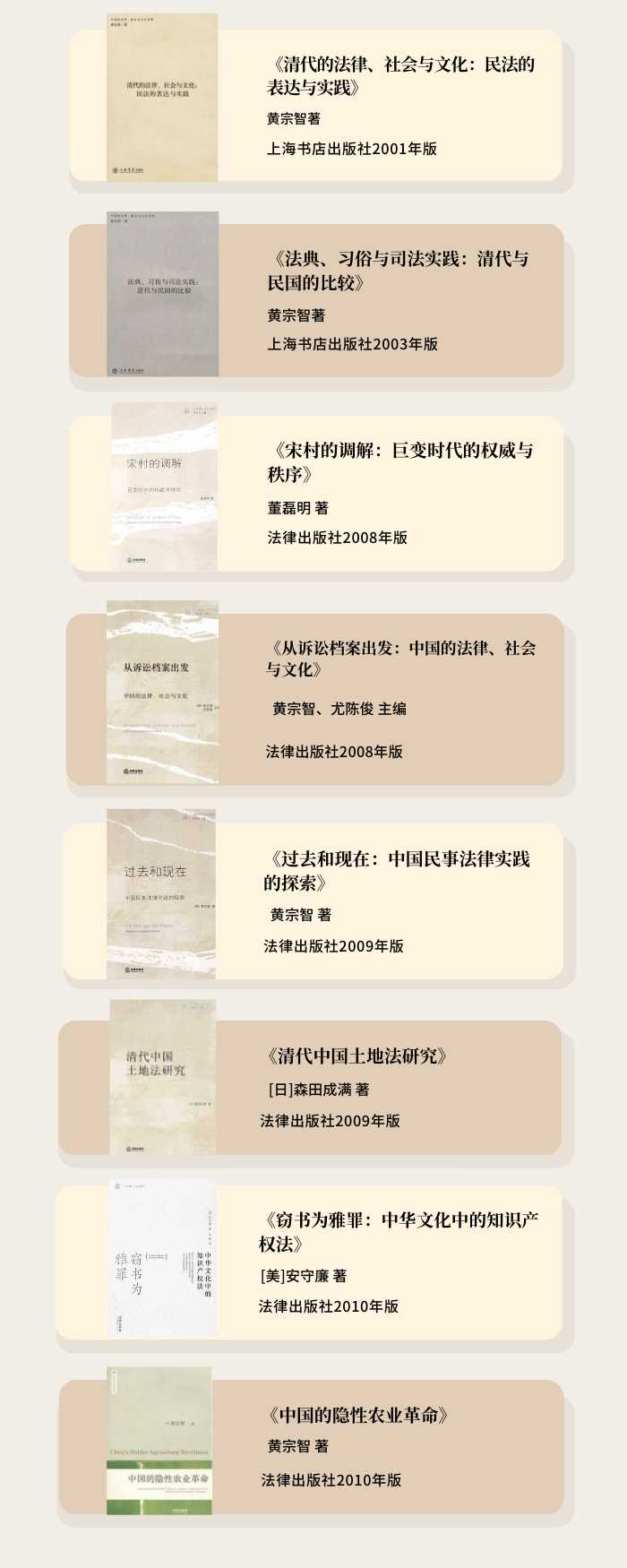

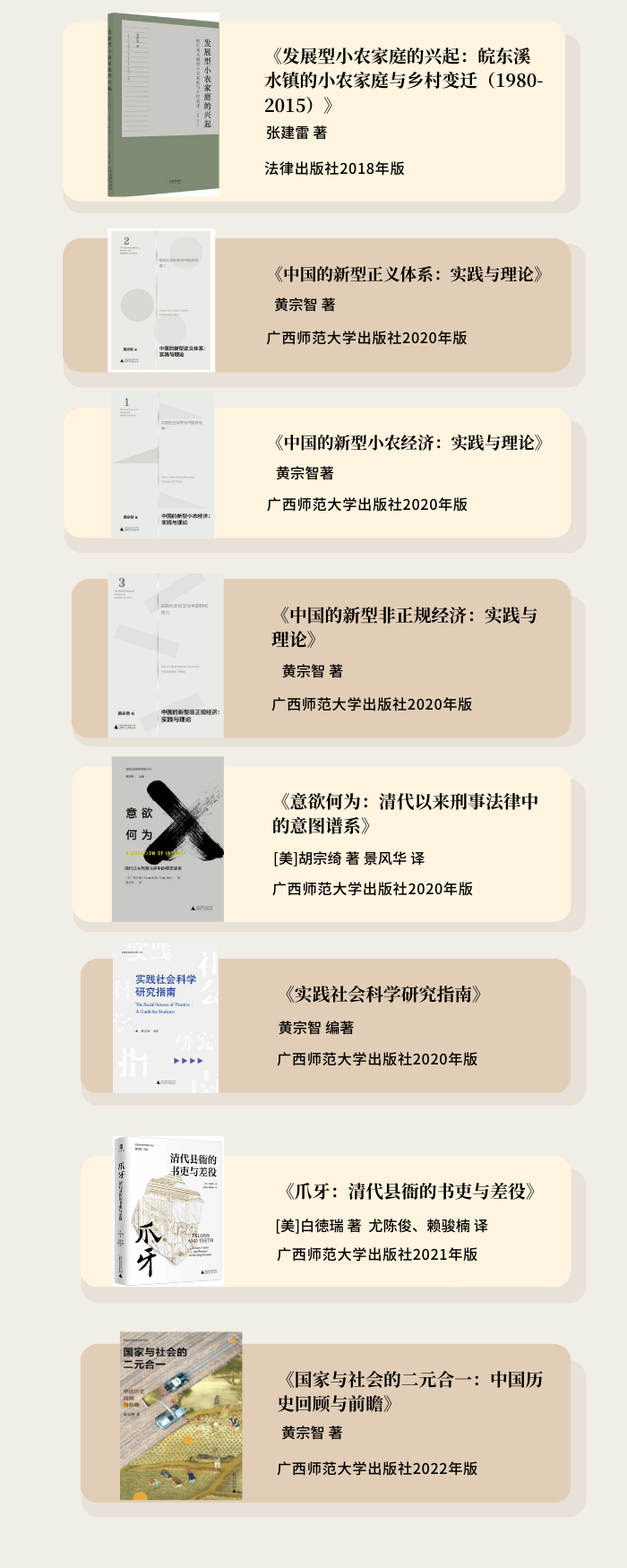
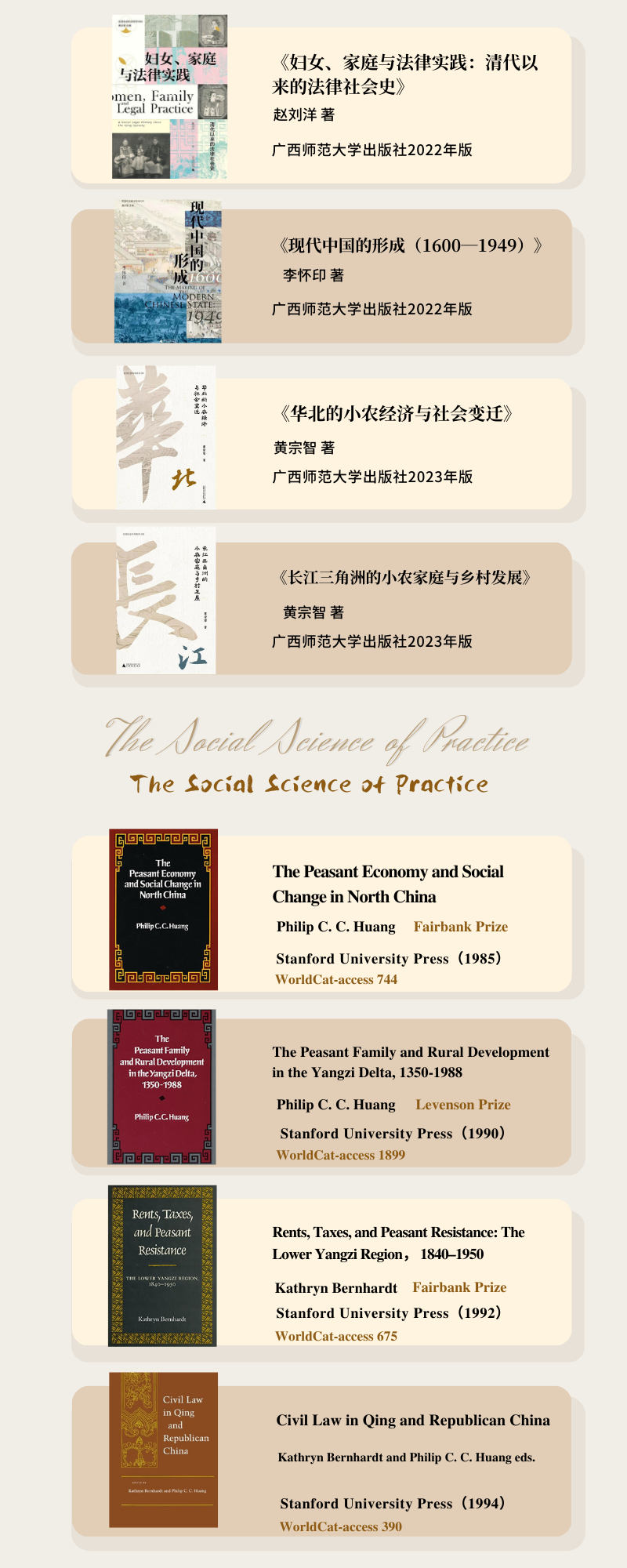
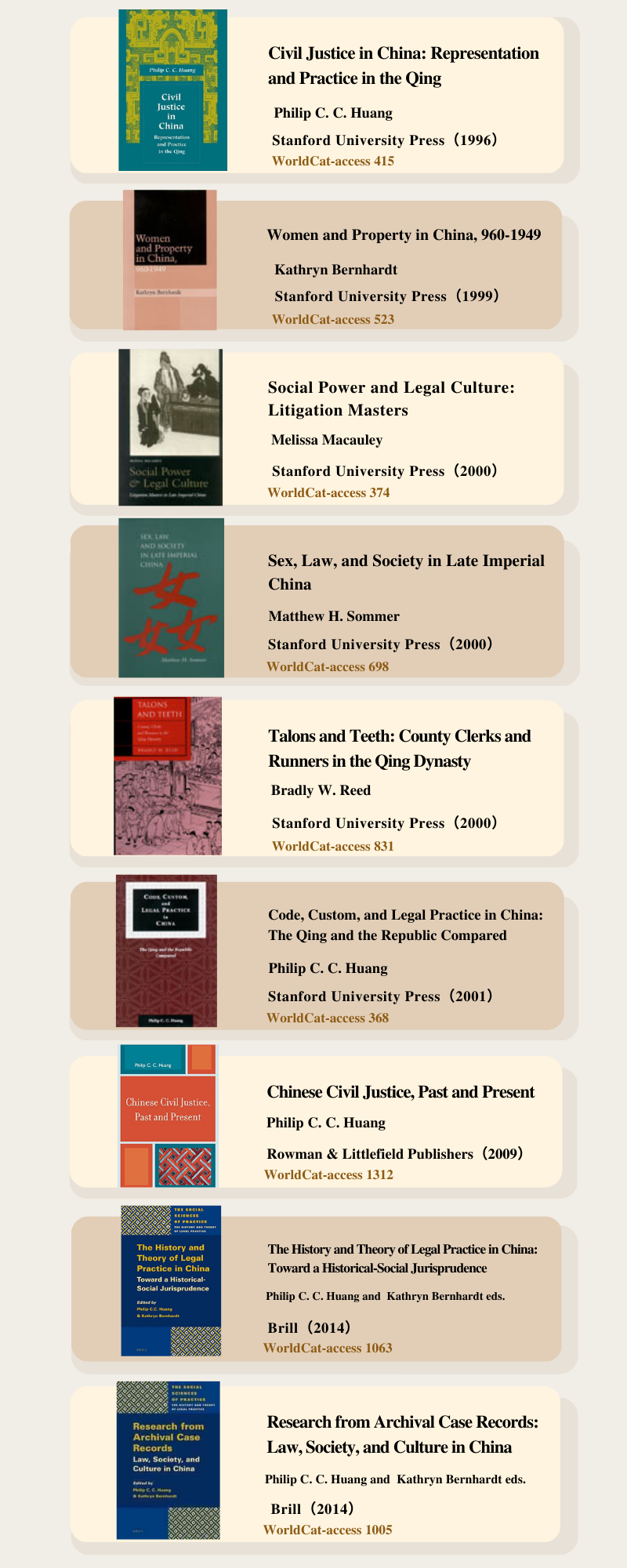
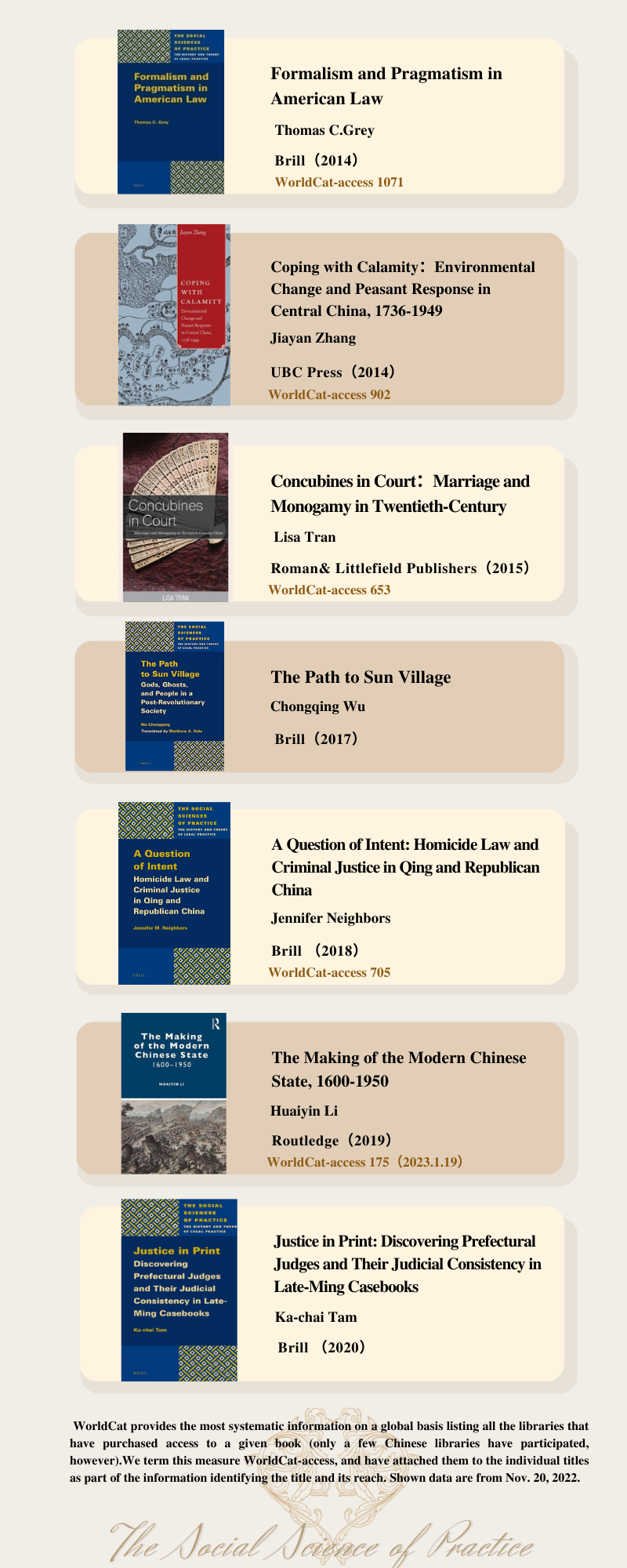
-
实践社会科学系列丛书总序.pdf ( 40805472023-03-17 09:13:10 ) (961) 下载


